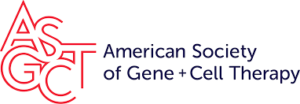When UNC Ophthalmology Associate Professor Matt Hirsch, PhD, completed his doctoral and post-doctoral training in 2008, his passion for pursuing study of bacterial- and viral-driven therapeutic gene delivery had been profoundly influenced by his doctoral and post-doc mentors. Ten+ years later, Hirsch is a leading genetic engineer at UNC, advancing ocular gene therapy for rare genetic diseases, among them, hereditary lysosomal storage diseases that lead to corneal blindness.
Hirsch has co-founded three UNC Gene Therapy-affiliated start-ups, secured seven U.S. patents, led 24 federally and industry-funded active and completed investigations, published 10 textbooks and chapters, authored 45 refereed articles, and mentored eight PhD candidates. At the 25th Annual Meeting of The American Society of Gene & Cell Therapy in May 2022, Hirsch will be among four established gene therapy researchers across the U.S. to be honored as recipients of the ASGCT’s 2022 Outstanding New Investigator Award. Despite this early career impressive record, Hirsch remains the constant learner.
led 24 federally and industry-funded active and completed investigations, published 10 textbooks and chapters, authored 45 refereed articles, and mentored eight PhD candidates. At the 25th Annual Meeting of The American Society of Gene & Cell Therapy in May 2022, Hirsch will be among four established gene therapy researchers across the U.S. to be honored as recipients of the ASGCT’s 2022 Outstanding New Investigator Award. Despite this early career impressive record, Hirsch remains the constant learner.
He noted: “Knowledge is most often learned from personal experience and from the conveyed personal experiences of others. I have been fortunate to have found myself in the right spot at the right time to meet truly exceptional people who have, and continue, to expand my understanding. Ironically, the uncomfortable situations that have taught me the most are those I would have avoided if I could have.”
Hirsch’s graduate-to-faculty years of studying physiology and genetics narrowed his focus to translational studies of Adeno-Associated Virus (AAV) Vectors to treat degenerative hereditary diseases. Unsurprisingly, his work in AAV gene therapy led him to collaborate with a research pioneer in ocular gene delivery — UNC Ophthalmology Chair Dr. Don Budenz.
Through cross-disciplinary research collaborations at UNC’s Gene Therapy Center, Dr. Budenz observed Hirsch’s expertise in using replication deficient AAV vectors to treat inherited degenerative diseases, such as the progressive muscle-wasting disease, dysferlinopathy. Consistent with the intent to develop the Carolina Eye Research Institute (CERI) into a world-renowned cell and gene therapy center focused on ocular drug development, Dr. Budenz recruited Hirsch to UNC Ophthalmology as an Assistant Professor.
Hirsch noted: “I’m always learning from Dr. Budenz the deficits in treating ocular diseases in the clinic, which constitute the true unmet needs of his patients. This inspires motivation and focus to try and fill the gaps at the molecular level and creates a truly collaborative working environment that has proved very productive.”
Over the past 6 years, Hirsch has contributed to the growth of the Carolina Eye Research Institute (CERI)’s base of large-scale federally and industry-funded clinical trials in innovating cross-disciplinary ophthalmic scientific approaches restoring and preventing loss of eyesight. His scope of AAV vector gene therapy development initially focused on reversing loss of vision in patients missing the Mucopolysaccharidosis type 1 (MPSI) gene. Hirsch’s 2020 co-founding of RainBio, a UNC-affiliated start-up solely focused on improving vision in MPSI patients, uses AAV therapeutics to reverse lysosomal storage disease from causing corneal blindness through replacing the missing MPSI gene.
Hirsch’s duty as a translational scientist is to develop therapeutics towards improving patient health. Learning to how to conduct independent investigation during his graduate years, he became a strong believer in mentors as motivators. Even as labmates around him were openly complimented for their work, his graduate mentor never praised his achievements. After his doctoral defense, his mentor conveyed to Hirsch that “he only told me what I needed to hear.”
“My graduate mentor approached each lab student uniquely through understanding their style of learning. He recognized that praise is not what motivates me. Conversely, a lack of it constantly challenged and inspired me to work even harder. Tailoring mentorship to the individual to groom [him/her] for success has become an aspect of my teaching philosophy.”
Hirsch takes advantage of the many opportunities to learn from the clinical and research expertise around him within UNC Ophthalmology to bolster his work in advancing ocular gene therapy. He routinely attends intra-departmental lectures, Ophthalmology Grand Rounds and case study presentations. Observing the teaching of clinical residents informs this basic scientist’s formulation of molecular biology-driven methods that generate translational and therapeutic solutions in treating ocular disease.
Developing therapeutic treatment for any disease relies upon the vital contributions of highly trained mentees who are learning to conduct independent, evidence-based investigation. Hirsch Lab learners are no exception in possessing the wide-ranging, collective talent that it takes to push and sustain success in large-scale translational investigations.
Hirsch noted: “Each student brings a different level of competency to our programs and the collective contributions make the team successful. Seeing students succeed in the development of their own career is extremely rewarding.”

